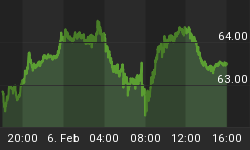Adapted from Chapter 18 of The Money Bubble by James Turk and John Rubino
In 1999 a brilliant, erratic iconoclast named Shawn Parker aimed an arrow at the heart of the recording industry. Called Napster, it allowed owners of music to swap it with others online, from one hard drive to another - without paying for it. The recording industry sued, and Napster went bankrupt. But the genie was out of the bottle and file sharing services have since proliferated, changing the world of digital media forever.
If a similar technology were to have the same impact on finance, the implications would be profound. By allowing anonymous person-to-person (P2P) transfers of money with no national origin, a crypto-currency like Bitcoin could shift the global financial system beyond the control of the world's central banks, something just as scary to them as the unlimited sharing of music was to the record labels.
By late 2013 the world's governments were wondering whether to try to co-opt Bitcoin or destroy it. The New York Department of Financial Services began questioning businesses that accept Bitcoins about their anti-money laundering safeguards. The U.S. Senate Homeland Security and Government Affairs Committee began an investigation into who should regulate virtual currencies, and how they should do it. And Germany's finance ministry announced that the country would recognize Bitcoins and other digital currencies as "private money" and start taxing their capital gains.
Here in early 2014 it is not clear that regulating and/or taxing a crypto-currency is even possible. Attempts to shut down other kinds of file sharing (though not individual file sharing sites) have failed, and the "darknet" market for drugs, stolen property and even murder-for-hire is surviving in the face of official disapproval.
So the questions become: Are national currencies about to go the way of the $16 music CD? Is Bitcoin the agent of this change? Or is it a bleeding-edge pioneer like Napster, opening doors through which others will walk?
Or Is It A trap?
What if, instead of threatening the powers that be, crypto-currencies like Bitcoin and its eventual competitors play into the hands of the emerging police state by giving them even greater control over our financial lives? Catherine Austin Fitts, author and proprietor of the Solari Report website examined the dark side of online money in a recent interview with GoldMoney's Andy Duncan:
"There's nothing the top people driving and managing the financial system would love more than a digital currency. Nicholas Negroponte used to run MIT's Media Lab and said that 'in a digital age, data about money is worth more than money.' If you can ultimately merge digital currencies [into one global currency] the people who control the digital systems and the Internet will have far more centralized power. Their access to real-time data on what we're all doing will be fantastic and amazing. So clearly if your goal is centralized governance of financial systems, you love digital money that is anonymous to the user, where you don't have to put sovereign insurance behind it, but completely transparent to you.
If I take money out of my bank, I take it from a place where they know me, where I have FDIC insurance and paper verification, where I don't have to depend on digital systems because I have paper as well as digital records. If I move it out of that structure where there is risk management and trust, go into something that is completely anonymous, I give up a lot.
The people running the financial system are great at letting things emerge and prototype and develop the knowledge you need to scale it up and then take it over. The more we depend on purely digital systems that have no tangible backing, the more we're going to encourage the kind of global digital currency that's centrally controlled and puts us in harm's way."
Another disturbing angle involves the growing cyber-war capabilities of the US and other major nations. In the aggregate they are throwing tens of billions of dollars each year at developing the tools to hack virtually any system. If they gain access to the algorithm that governs the increase in the supply of a given crypto-currency - or figure out how to intercept transactions en route from buyer to seller - they would be able to hijack that currency for their own ends, either to finance themselves or punish/control those who depend on it. As Catherine Austin Fitts says, "Anybody who thinks the government can't control crypto-currencies is just dreaming."
This lack of physical reality ultimately means that crypto-currencies can't, in our opinion, be considered "money." That is, they function beautifully as a currency, but as a store of value they are suspect because they lack a corporeal existence. So they're not an appropriate place for one's life savings.
But don't count them out. Given the speed with which other Internet applications - and the Internet itself - have evolved from techie playthings to essential tools of modern life, it's easy to envision crypto-currencies traveling the same path. They have the potential, once their kinks are ironed out, to function as an efficient online currency in a gold-based monetary system that would bypass and make irrelevant today's national fiat currencies.
Read the rest of The Money Bubble















